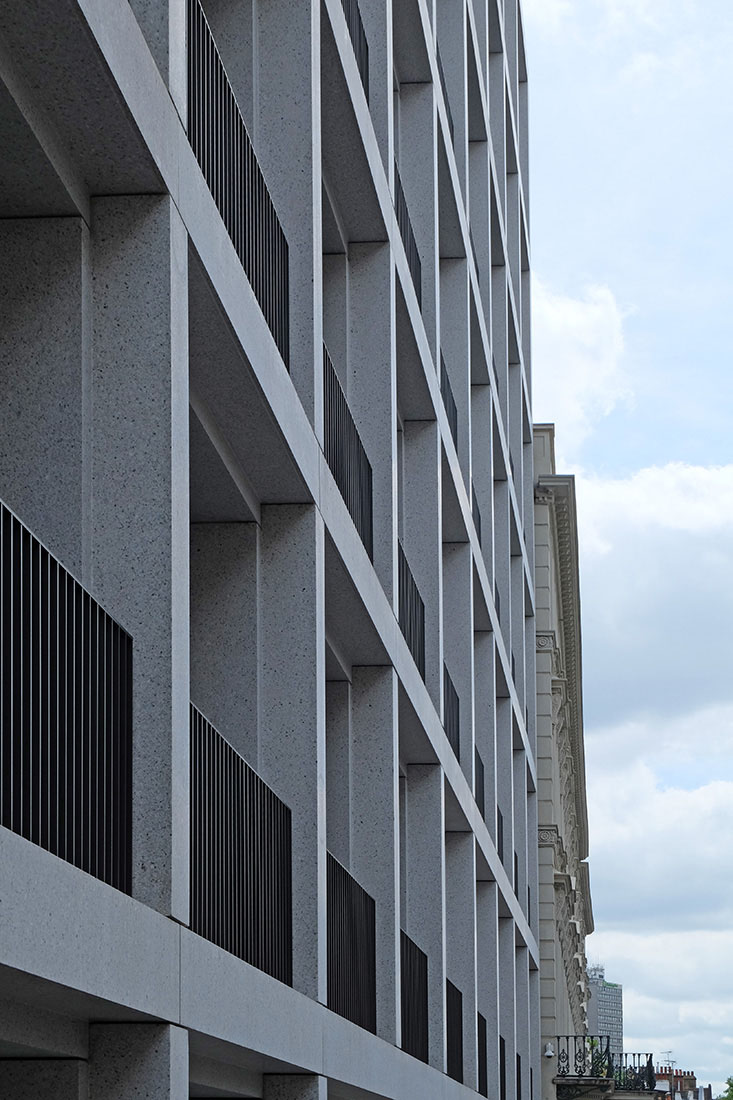 |
 |
 |
 |


One Kensington Gardens
Kensington Road / Victoria Road, London
2010 - 2015
The One Kensington Gardens residential development in London is located on a prominent site facing Kensington Gardens, bounded by Victoria Road and De Vere Gardens. The project comprises 97 high-quality residential units and includes the internal reorganisation of the existing site and three new buildings facing Kensington Road, Victoria Road, and Canning Passage respectively. It also involves the reuse and incorporation of the nineteenth-century terraced house fašades along Victoria Road and De Vere Gardens, which sit within the Royal Borough of Kensington and Chelsea’s De Vere Gardens Conservation Area.
The new buildings on Kensington Road and Victoria Road are formed of a post-tensioned reinforced concrete structure. The Kensington Road building is clad in handset Portland stone at ground level and each floor above is defined by a thin band of Portland stone referencing the strong horizontal lines in the surrounding traditional fašades. The elevations are finished with solid bronze balustrades and window framing to all balconies. As the new building on Kensington Road turns away from Hyde Park, the rhythm of the columns change to break up the street elevation into a more varied series of fašades, culminating in the rhythm of the interlocking precast elements of the new Victoria Road building. The exterior of the new building on Canning Passage extends the material identity of the development, applying it in a new architectural language to achieve individuality and harmony between each of the new buildings. Its solid brick fašade is similar to the surrounding original brick stock and is articulated by strips of reconstituted stone at each floor level. All of the new buildings have their own individual street entrance and the previously blocked entrance porticos in the retained fašades have been reinstated. This restores to the elevation its heterogeneity, while allowing the scheme to comfortably fit back into its original use and enhance the character of the conservation area.
At the centre of the development are a series of internal courtyards, clad in a matte glazed white brick. Whilst not publicly accessible, they provide the surrounding apartments with natural light and a visual connection to a considered landscape design. The apartments themselves vary in size and aspects, differentiated primarily through their position within the development – 29 of the apartments are within the three new buildings and 68 are located behind the retained fašades. Working within this framework, the apartment layouts have been generated from the existing arrangement of windows and party walls and take the form of a sequence of clearly defined and interrelated, well-proportioned rooms.
(Text: David Chipperfield Architects)